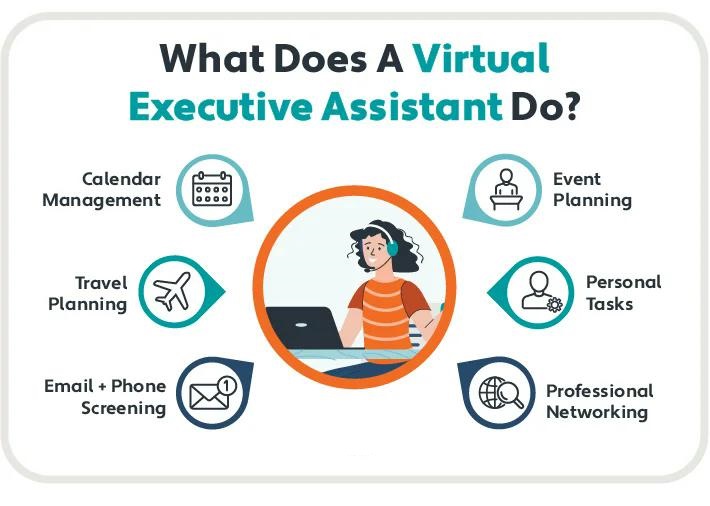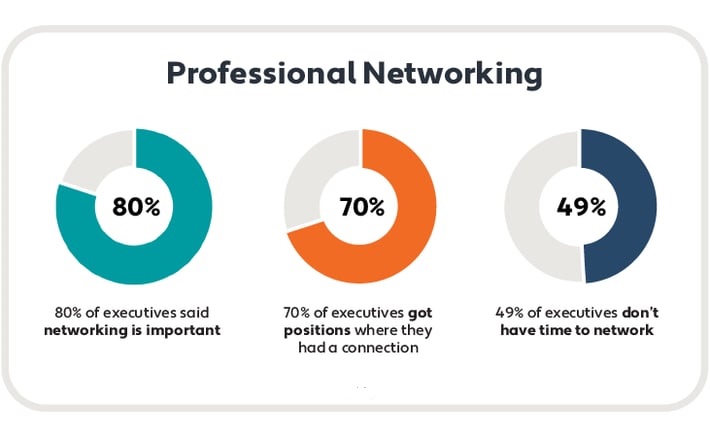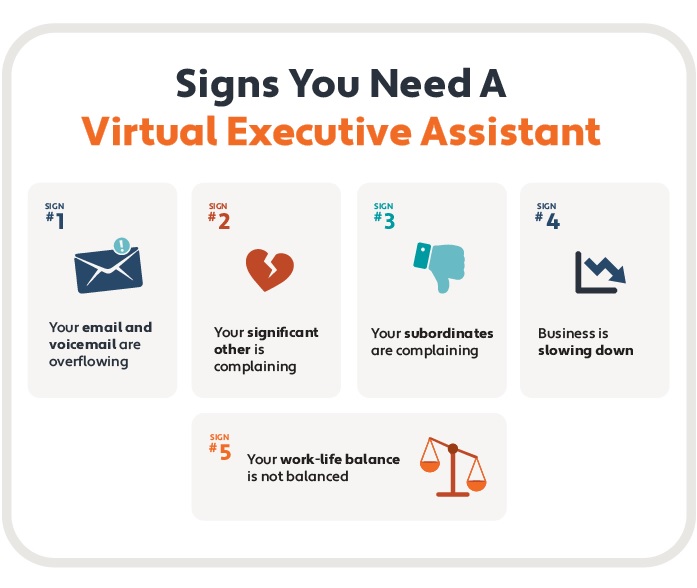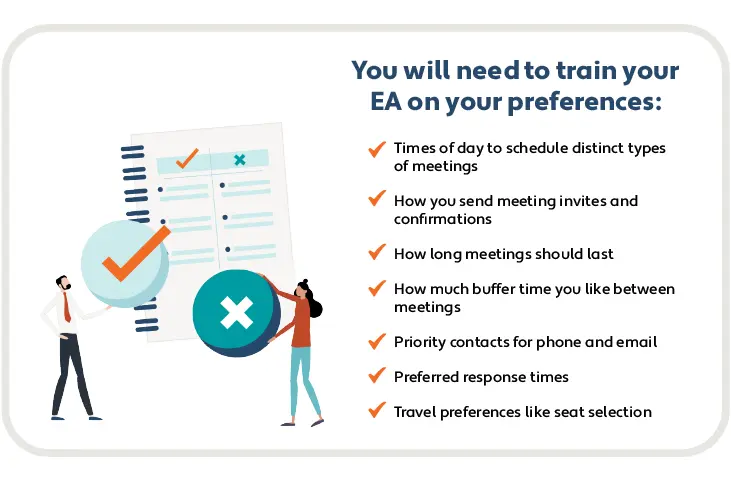The Ultimate Guide to Virtual Executive Assistants in 2023
- admin
- January 2, 2023
Virtual executive assistants play a critical role in enabling busy executives to maximize their time moving their businesses forward and minimizing the important but non-business-critical tasks that become distractions.
Virtual assistants are growing in popularity as executives worldwide become more comfortable with remote employees. If you’re looking for a virtual executive assistant, use this guide to understand what they do and how to find the right one for your workflows and your business.
Table of contents
- What Is the Definition of a Virtual Executive Assistant?
- What Does a Virtual Executive Assistant Do?
- Why You Need a Virtual Executive Assistant
- How Much Does a Virtual Executive Assistant Cost?
- How to Hire a Virtual Executive Assistant
- How to Manage a Virtual Executive Assistant
- Getting Started
What Is the Definition of a Virtual Executive Assistant?
A virtual executive assistant is a (usually) part-time remote administrative assistant dedicated to a specific executive or team. The role is best understood by comparing the position to that of a traditional administrative assistant. A simple description is that an administrative assistant supports a business, while an executive assistant supports an executive. While the roles may overlap, a virtual executive assistant often becomes a CEO or VPs “right hand,” capable of making independent decisions to enhance productivity.
A traditional virtual assistant performs repetitive admin tasks based on documented processes, while a virtual executive assistant might help define and establish those processes.
Traditional virtual assistants often perform work for sales teams and back-office systems not related to a specific executive.
Executives often perform admin tasks to support themselves and eventually reach a point where their ability to grow their business stalls due to their restricted time. A virtual executive assistant can step in and take on some of the admin work with an elevated level of skill and trust.
What Does a Virtual Executive Assistant Do?

The type of work that a virtual executive assistant includes:
Email and phone screening
Travel planning
Event planning
Professional networking
Personal tasks
Calendar Management
Executives spend 16 hours a week on day-to-day tasks, and scheduling meetings is a significant drain on their time. It takes about 20 minutes to schedule a meeting, and the processes can be very disruptive with:
Email ping-pong to find a time that works
Rescheduling and cancelations
No-shows that mean starting over
Multiply those 20 minutes across a few meetings per day, and you’ve got a lot of wasted time.
A virtual executive assistant can take over this process by:
Reaching out to meeting attendees
Proactively sharing slots available on the executive’s calendar
Sending confirmations to reduce no-shows
Internal stakeholders often vie for an executive’s time. A virtual executive assistant learns who is most important to an executive’s work and can defer requests to more appropriate contacts in the company.
Email and Phone Screening
Executives can spend up to three hours a day managing email and voicemail. Much of that time is spent deleting unimportant messages. The process is incredibly disruptive when done in real-time as emails arrive. You stop what you’re doing to see if a message is important and requires your attention. “Switching time,” the time it takes to back out of one task, attend to another, and returning to the first task, takes another 20-25 minutes.
A virtual executive assistant who learns your contacts and priorities can take over email and phone screening, so you only deal with messages that require your attention. The assistant can also:
Forward messages to a more appropriate contact
Create folders and store emails for you to review later
Return calls and emails to qualify ambiguous inquiries on your behalf
Travel Planning
Many executives prefer to plan their own travel because they want to control their experience. They have preferences for:
Airlines
Airports
Aircraft seating
Loyalty program perks
Hotel chains
Room types
Rental car agencies
Vehicle types
It’s understandable. Travel, even for business, is a personal experience. But it takes about 12 hours to plan the average business trip. Think of all the time you spend looking at different flight times, layovers, hotel availability, prices, and starting over when one itinerary doesn’t quite work. Then there is the time spent scheduling meetings at the destination city, selecting restaurants for meals, and making reservations. It adds up.
You can document and delegate all of these preferences. You can always review the final plan and make changes. Still, it’s a huge advantage to have an executive assistant that knows your requirements and hands you a complete itinerary with all the necessary documents before you leave.
Event Planning
Trade shows and conferences often involve a myriad of logistics. While a virtual executive assistant isn’t a tradeshow manager, they can oversee internal and external executive event plans to make sure they meet your standards for venues, meal choices, displays, and materials.
External executive events include:
- Trade shows
- Conferences
- Partner meetings
- Executive speaking opportunities
For external events, a virtual executive assistant can:
Reserve venues
Send invitations to your contacts
Order display and collateral materials
Arrange for any shipping to the venue
Book your flights, hotels, and meetings
Register for the event
Submit abstracts for speaking opportunities
Professional Networking
Keeping up with professional networks is something that often falls by the wayside for busy executives. A LinkedIn study found that:
80 percent of executives said networking is important
70 percent got positions where they had a connection
49 percent say they don’t have time to do it

A virtual executive assistant can be your networking ninja, helping you stay connected with your contacts by:
Entering and segmenting contacts in a database
Scheduling regular calls
Researching events you are attending to see if connections will be there and scheduling meetings
Following up on action items
Personal Tasks
Personal tasks take up to 25 percent of an executive’s time. Just as day-to-day work duties impede productivity, non-work tasks can do the same. The goal is not necessarily to give the executive more time to work (and less at home) but to enable executives to focus on what matters most in their lives—at work and beyond. A virtual executive assistant can perform personal tasks like:
Shopping for gifts
Scheduling personal appointments
Paying bills
Planning family vacations
Making dinner reservations
An assistant can also make sure that important personal functions are on the executive’s calendar, such as:
Parent-teacher meetings
Children’s activities
Birthdays and anniversaries
Why You Need a Virtual Executive Assistant
You need a virtual executive assistant because there isn’t enough time in the day! Technology has made it possible for executives to be self-sufficient, which includes being their own admins. Voicemail, calendar apps, travel and expense apps, and more have made in-office admins scarce, but those tasks still need to be done.
You need a virtual executive assistant when you need someone who can effectively represent you to others inside and outside your organization. You’re giving this person the authority to:
Schedule internal and external meetings
Prioritize email and phone communications
Delegate requests for your time to a more appropriate contact
Signs you need a virtual executive assistant include:
Your email and voicemail boxes are overflowing
Your significant other is complaining
Your subordinates are complaining
Business is slowing down
Your work-life balance is not balanced

These are signs that what is most important, at work and home, is suffering. A virtual executive assistant can help you get back on track.
How Much Does a Virtual Executive Assistant Cost?
The cost of a virtual executive is usually an hourly rate. That rate depends on how you hire the assistant and whether the assistant is U.S-based or offshore. There are three ways to hire a virtual executive assistant with different price points, risks, and benefits:
Directly hire a part-time employee or freelancer
Hire through a contract virtual executive assistant agency
Hire through a managed virtual executive assistant service
The Cost of a Direct-Hire Virtual Executive Assistant
Plain and simple, directly hiring an employee will be the least expensive option, especially offshore. Using a job board is the most common way to engage directly. Direct-hire rates start at:
$2 per hour for offshore virtual assistants
$20 per hour for U.S.-based assistants
Note that these prices don’t differentiate between a virtual assistant and a virtual executive assistant.
While a direct hire may offer the lowest hourly rate, it will cost you the most time. You will need to recruit, hire, and provide any HR overhead. More importantly, you’ll have to train and manage another employee. If you’re already overstretched, make sure you know what you are looking for to find the right person. You want your assistant to give you time back, not take more of yours!
Also, keep in mind that your remote virtual assistant will be working in a home office and network and with a personal computer. If you give this assistant access to any sensitive personal or company information, you’ll need to inquire about the assistant’s security measures. Finally, the risk of a mismatch and quality control of the assistant are all yours. A bad hire means you start over.
The Cost of a Virtual Executive Assistant Agency
There are dozens, if not hundreds, of U.S. virtual assistant agencies that offer to connect you with U.S.-based and offshore assistants. Not all of them specialize in executive assistants. The advantage of using an agency is that some of the vetting is done for you. Most agencies screen candidates and have some experience matching executives with the right assistant. That removes some of the risks of a bad hire and much of the recruiting and interviewing time. Also, you typically pay the agency, which eliminates any HR overhead.
That said, any required training, performance management, and quality control are up to you. You’ll pay more because there is a “middleman” taking a share of the rate. Using an agency can work if you have experience managing virtual executive assistants. Virtual assistant agency rates start at:
$8 per hour for an offshore assistant
$30 per hour for a U.S.-based assistant
As with job boards, agencies don’t differentiate between executive assistants and admin assistants.
The Cost of a Managed Virtual Assistant Service Provider
With a managed virtual executive assistant service, you’re not hiring a virtual assistant; you’re hiring a company. Managed virtual assistant service providers recruit, train, and optimize the performance of offshore virtual assistants on your behalf. Managed service providers typically offer a few types of virtual assistants for distinct functions:
Executive administration
Sales and marketing support
Back-office operations
The assistants are employees of the service provider. An account manager supports the executive functions of your assistant, documenting your processes and training the assistant on your preferred workflows, and an internal manager oversees performance. The managed service is a high-touch model and is ideal if you don’t want additional people to train or supervise. In addition to a trained executive assistant, you also get a fully trained backup assistant that takes over when your primary assistant is not available.
- Managed virtual executive assistant services start at $25 per hour
A fourth way to hire a virtual assistant is through a freelance marketplace like Upwork, but that isn’t realistic for an executive assistant as these services are more task-based.
How to Hire a Virtual Executive Assistant
As mentioned above, there are three ways to hire a virtual executive assistant:
Directly hire a part-time employee or freelancer
Hire through a contract virtual executive assistant agency
Hire through a managed virtual executive assistant service
How to Hire a Part-time or Freelance Virtual Executive Assistant
To hire a part-time employee, the options are the same as for any position. You place an ad on Craigslist or a job board, or you can search a job board or marketplace for suitable candidates. In either case, you’ll need to know what you’re looking for—the skills, experience, hours per week, tools, and technology that your executive assistant will need.
Job boards with U.S.-based virtual assistants include:
Craigslist
Indeed
ZipRecruiter
Job boards and marketplaces with offshore executive assistants include:
Onlinejobs.ph
Upwork
Fiverr
How to Hire a Part-time or Virtual Executive Assistant through an Agency
There are a few ways to find a contract executive virtual assistant through an agency. Most agencies serve as matchmakers. An account manager will document your needs and connect you with the profiles of candidates in their networks that the agency thinks are good matches. The advantage of this method is that there is more vetting involved, and you get some help from experienced recruiters. Once the match is made, you are responsible for any needed training and for performance management and quality control. (See How to Manage a Virtual Executive Assistant below).
There are many agencies available that offer U.S-based and offshore virtual assistants.
U.S.-based agencies include:
- Belay
- Delegated
- Time Etc.
Many agencies offering offshore executive assistants are based in the U.S., including:
MyTasker
Remote Coworker
Clear Desk
How to Hire a Virtual Executive Assistant through a Managed Service Provider
As mentioned above, the answer to the question “How do you hire a virtual executive assistant through a managed service provider is?” is, “You don’t.” The service provider hires, trains, and manages the virtual executive assistant. You tell them your needs, and the provider picks an assistant with the experience and skills you need. Hiring can be time-consuming, and using a managed service is the fastest way to get started.
The advantage of this model is that you don’t need to qualify or train your virtual executive assistants. This can be valuable for executives that:
Don’t have experience hiring or managing virtual assistants and don’t know what to look for.
Don’t want more people to manage.
Want to get from zero to sixty as quickly as possible.
There are fewer managed service providers than freelance or contract virtual assistant options because:
The virtual executive assistants are W2/equivalent employees of the provider, and the provider must comply with all labor, tax, payroll, and HR requirements
These are white glove services that have more overhead than job boards or agencies.
Staffing and service delivery requires more operational sophistication.
Managed virtual executive assistant service providers include:
Boldy (U.S-based with U.S. assistants)
Quickskill (U.S.-based with offshore assistants)
How to Manage a Virtual Executive Assistant
As you can see from the section above, there are two options when it comes to managing a virtual executive assistant:
Manage the assistant yourself
Engage a managed service provider
Managing includes training. While an assistant may have experience with the software platforms you use, they may still need training in your processes and preferences in using these tools. You will need to train an executive assistant on your processes and preferences:
How to send meeting invitations and confirmations
Times of day you like to schedule distinct types of meetings
How long meetings should last
How much buffer time you want between meetings
Priority contacts for email and phone responses
Your preferred response times for communications
All your travel preferences

With a direct-hire or agency, you or someone in your organization must train and manage the assistant on your processes. With a managed service provider, an account manager documents your processes and preferences in an onboarding call. The service provider trains the virtual executive assistant in advance so that the assistant arrives ready to work.
Getting Started
A virtual executive assistant can be a lifesaver for busy executives, giving you back those 16 hours a week you spend on busywork. As you can see, there is a lot to consider when making this hire. Because the assistant will be your representative to internal and external contacts, it’s important to get it right.
Quickskill offers a managed virtual assistant service that has helped executives boost productivity for more than 12 years.
To learn more about working with a Quickskill virtual executive assistant, read our guide.

